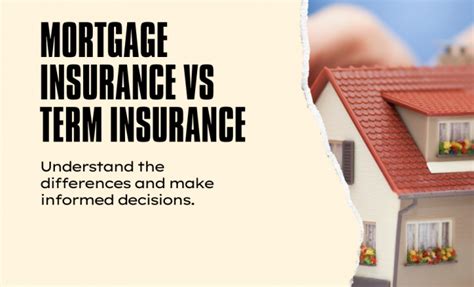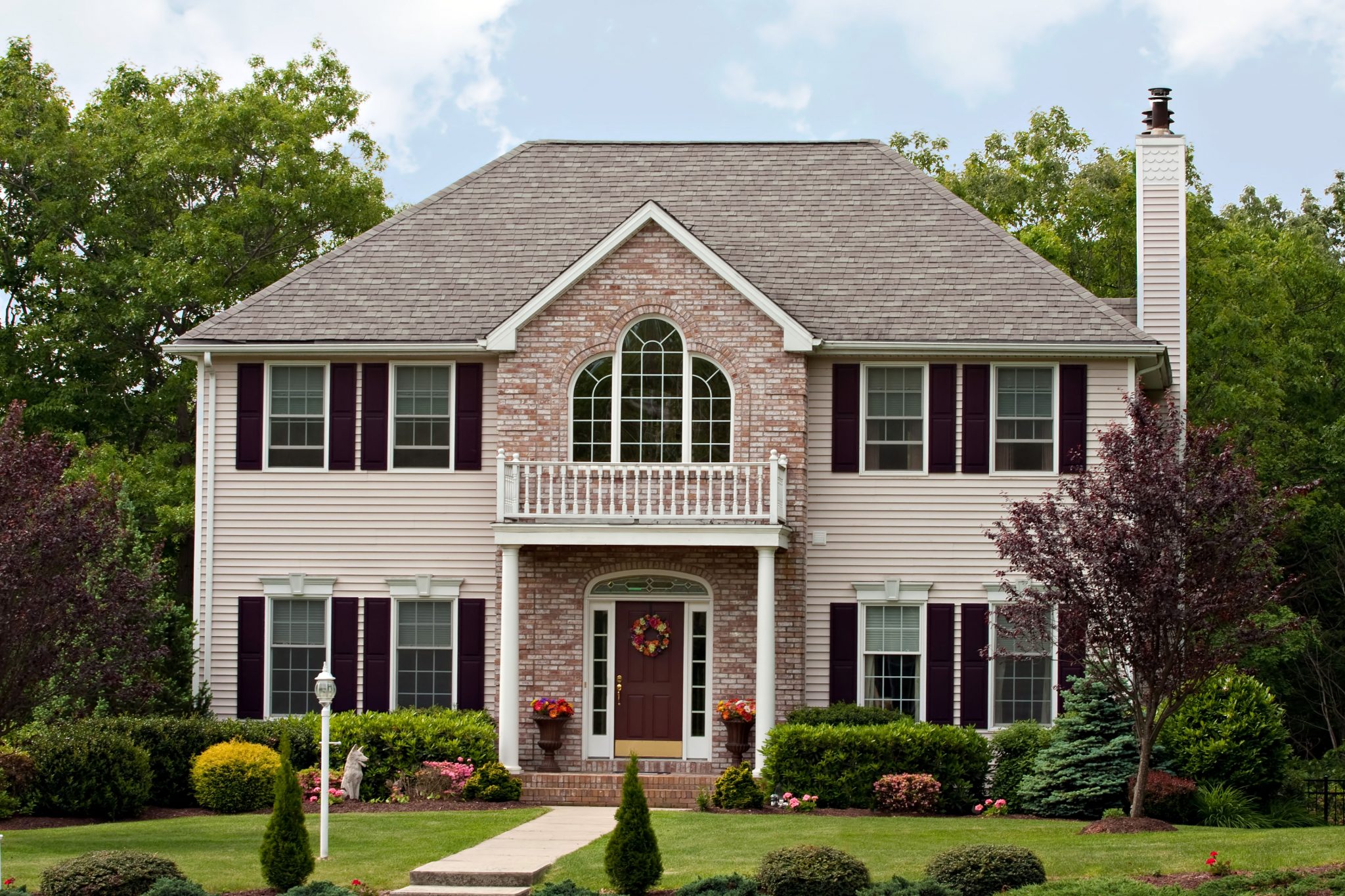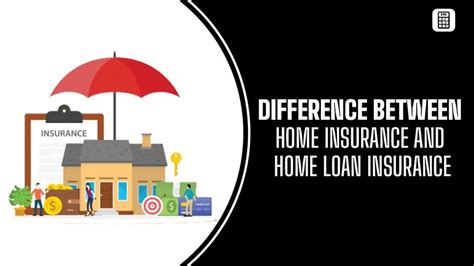Home Loan Insurance

Securing a home loan is an exciting step towards financial stability and homeownership. However, it's essential to navigate the complex world of mortgage lending with caution and awareness. One crucial aspect that often comes into play is home loan insurance, a safeguard designed to protect both lenders and borrowers. In this comprehensive guide, we'll delve into the world of home loan insurance, exploring its purpose, types, and implications for borrowers like yourself.
Understanding Home Loan Insurance

Home loan insurance, also known as mortgage insurance or mortgage guarantee insurance, is a financial instrument that plays a critical role in the mortgage lending process. It's a protection mechanism aimed at mitigating the risks associated with lending large sums of money for property purchases.
When you take out a home loan, the lender assumes a certain level of risk. If you, as the borrower, are unable to make your loan repayments, the lender may incur significant financial losses. Home loan insurance steps in to provide a safety net, ensuring that the lender is protected in the event of default.
The Purpose of Home Loan Insurance
The primary purpose of home loan insurance is to enhance the stability and security of the mortgage market. By offering protection to lenders, insurance providers enable them to extend loans to a wider range of borrowers, including those who may not meet traditional lending criteria.
In essence, home loan insurance acts as a risk-sharing mechanism. It allows lenders to offer more flexible loan terms, such as higher loan-to-value ratios or reduced down payment requirements, knowing that they have an added layer of protection should borrowers encounter financial difficulties.
Types of Home Loan Insurance
There are several types of home loan insurance, each catering to different borrower profiles and loan scenarios. Understanding these variations is crucial for borrowers to make informed decisions about their mortgage options.
- Private Mortgage Insurance (PMI): PMI is typically required when borrowers have a down payment of less than 20% of the home's purchase price. It protects the lender against losses if the borrower defaults on the loan. PMI can be canceled once the borrower reaches a certain equity threshold in their home.
- Federal Housing Administration (FHA) Insurance: FHA insurance is a government-backed program that insures loans made by FHA-approved lenders. It caters to borrowers with lower credit scores or limited down payment funds. FHA insurance has specific requirements and is often a popular choice for first-time homebuyers.
- Veterans Affairs (VA) Loan Guaranty: The VA loan guaranty program is exclusively for eligible U.S. military veterans, service members, and their spouses. It offers a guarantee to lenders, allowing them to provide loans with no down payment and relaxed credit requirements. VA loan guaranty is a powerful benefit for those who have served our country.
- USDA Rural Development Guaranteed Housing Loan Program: This program provides loan guarantees to approved lenders, facilitating homeownership in rural areas. It offers 100% financing and is designed to support economic development in rural communities.
Each type of home loan insurance has its own set of eligibility criteria, coverage limits, and cost structures. It's essential to thoroughly research and understand the specifics of the insurance option that aligns with your loan and personal circumstances.
The Impact on Borrowers

While home loan insurance primarily benefits lenders, borrowers also experience its implications. Understanding how insurance affects your loan can help you make more informed decisions and navigate the mortgage process effectively.
Cost Considerations
One of the most significant impacts of home loan insurance on borrowers is the additional cost. Insurance premiums are typically included in the overall loan amount and are payable either as an upfront fee or as monthly installments. These costs can vary based on the type of insurance, loan amount, and borrower's creditworthiness.
For example, PMI premiums are typically calculated as a percentage of the loan amount, with rates ranging from 0.3% to 1.5% annually. FHA insurance premiums consist of both an upfront mortgage insurance premium (UFMIP) and an annual mortgage insurance premium (MIP). VA loan guaranty, on the other hand, does not require a down payment or mortgage insurance, making it a cost-effective option for eligible borrowers.
It's crucial to factor in these insurance costs when comparing loan options and calculating your overall financial obligations.
Loan Eligibility and Flexibility
Home loan insurance plays a vital role in expanding loan eligibility and providing flexibility to borrowers. Lenders are more inclined to offer loans to borrowers who may not meet conventional lending standards when they have the protection of insurance.
For instance, FHA insurance allows borrowers with lower credit scores and smaller down payments to qualify for loans. This flexibility can be especially beneficial for first-time homebuyers or those with limited financial resources. Similarly, VA loan guaranty enables veterans to secure home loans with no down payment, making homeownership more accessible.
By understanding the insurance options available, borrowers can explore a wider range of loan possibilities and find the best fit for their unique circumstances.
Equity Considerations
The presence of home loan insurance can also impact the borrower's equity position in the property. Certain types of insurance, such as PMI, allow borrowers to cancel the insurance coverage once they reach a specific equity threshold.
For example, PMI can typically be canceled when the borrower's loan-to-value ratio reaches 80% or less. This means that as the borrower pays down the loan principal or the property value appreciates, they may be able to request the cancellation of PMI, reducing their monthly payments and overall loan costs.
However, it's essential to note that not all types of insurance offer cancellation options. FHA insurance, for instance, requires borrowers to pay mortgage insurance premiums for the life of the loan if their down payment is less than 10%.
Performance Analysis and Industry Insights
To gain a deeper understanding of home loan insurance, let's examine some real-world data and industry trends.
| Insurance Type | Premium Rates (Annual) | Down Payment Requirements |
|---|---|---|
| Private Mortgage Insurance (PMI) | 0.3% - 1.5% | As low as 5% |
| FHA Insurance | Upfront: 1.75%, Annual: 0.45% - 1.05% | As low as 3.5% |
| VA Loan Guaranty | No Down Payment or Mortgage Insurance | None |
| USDA Rural Development | Upfront: 1%, Annual: 0.35% | 100% Financing |

These numbers provide a snapshot of the cost and eligibility requirements associated with different types of home loan insurance. It's important to note that actual rates and terms may vary based on individual borrower circumstances and market conditions.
Industry experts highlight the importance of staying informed about insurance options and their evolving nature. For instance, FHA insurance has seen adjustments in its premium rates and cancellation policies over the years, reflecting the dynamic nature of the mortgage market.
Additionally, the availability and requirements of home loan insurance can vary across different countries and regions. It's crucial for borrowers to consult local regulations and seek guidance from reputable mortgage professionals to navigate the specific insurance landscape in their area.
Expert Insights and Tips
- Compare Loan Options: Don't settle for the first loan offer that comes your way. Explore different loan options, including those with and without insurance requirements, to find the best fit for your financial goals and circumstances.
- Understand Cancellation Policies: Familiarize yourself with the cancellation policies associated with the type of insurance you choose. Knowing when and how you can cancel insurance can save you money in the long run.
- Build Equity Strategically: If your loan includes insurance that can be canceled with increased equity, consider strategies to accelerate your equity buildup. This could involve making extra principal payments or waiting for property values to appreciate.
- Consider Refinancing: If market conditions change or your financial situation improves, refinancing your loan could be an option to explore. Refinancing can help you remove insurance requirements, reduce interest rates, or adjust your loan terms to better suit your needs.
- Stay Informed: The mortgage industry is subject to regulatory changes and market fluctuations. Stay updated on any developments that may impact home loan insurance requirements or costs. This knowledge can empower you to make timely and informed decisions.
Remember, home loan insurance is a critical component of the mortgage lending process, providing stability and flexibility to both lenders and borrowers. By understanding its purpose, types, and implications, you can make confident decisions about your home loan journey.
Frequently Asked Questions

How does home loan insurance benefit borrowers?
+
Home loan insurance benefits borrowers by expanding loan eligibility and providing flexibility. It allows lenders to offer loans to borrowers who may not meet traditional lending criteria, such as those with lower credit scores or smaller down payments. This can make homeownership more accessible and provide opportunities for borrowers to build equity and financial stability.
What are the different types of home loan insurance?
+
There are several types of home loan insurance, including Private Mortgage Insurance (PMI), Federal Housing Administration (FHA) Insurance, Veterans Affairs (VA) Loan Guaranty, and USDA Rural Development Guaranteed Housing Loan Program. Each type has its own eligibility criteria, coverage limits, and cost structures.
How does home loan insurance impact loan costs for borrowers?
+
Home loan insurance adds an additional cost to borrowers in the form of insurance premiums. These premiums can be paid upfront or as monthly installments, and they vary depending on the type of insurance, loan amount, and borrower’s creditworthiness. It’s essential to factor these costs into your loan calculations and overall financial planning.
Can home loan insurance be canceled, and if so, when?
+
The ability to cancel home loan insurance depends on the type of insurance and the specific terms of the loan. For example, Private Mortgage Insurance (PMI) can typically be canceled when the borrower’s loan-to-value ratio reaches a certain threshold, usually 80% or less. However, not all types of insurance offer cancellation options, such as FHA insurance for loans with less than 10% down payment.



